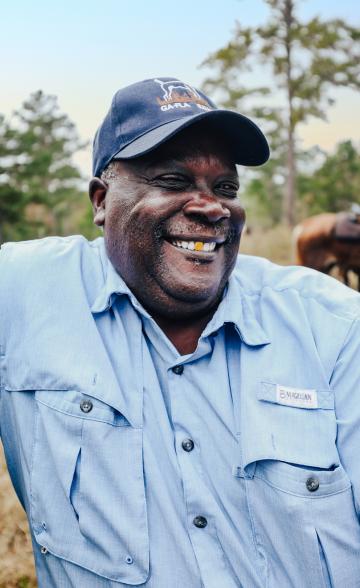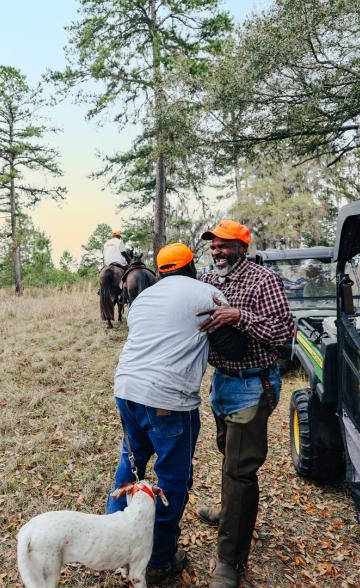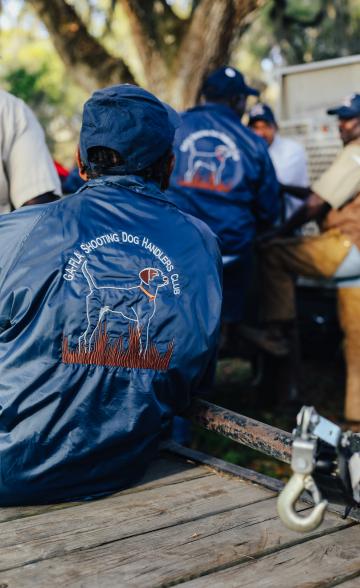In the Red Hills of South Georgia, it has been tradition since the early 18th century to hunt Bobwhite Quail behind pointing dogs. So much so that training and trialing world-class bird dogs in the region's Longleaf Pine forests has become as ingrained in the local culture as sweet tea and fried okra. Yet, despite their rich history of dog training, many preeminent authorities on the matter were barred from competing in nearby events for nearly 200 years due to the color of their skin. That all changed in 1981, when Neal Carter Jr. and others decided to form the Black Bird Dog Handlers Field Trial.
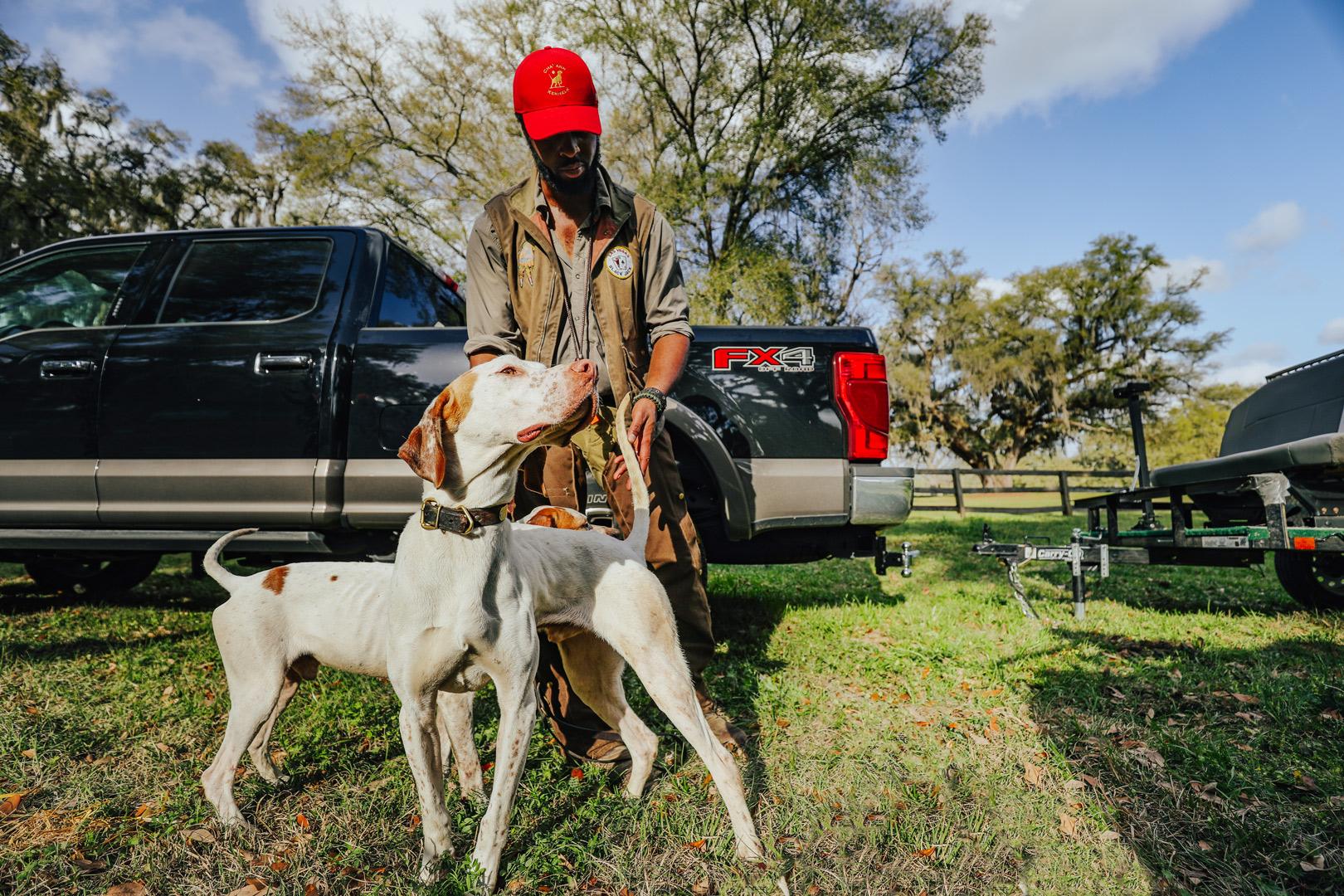
It's the first Monday in March, which means one thing for Durrell Smith—he’s got an early morning and a long day ahead of him. Atlanta born and bred, the 32-year-old leaves The Big A at 2 A.M. every year on this day to arrive in Thomasville, GA before sunrise. Thomasville, a four-hour drive to the south, is the Bobwhite Quail Capital of the World. However, Durrell isn't hoping to bag his limit of the prized game bird. He's after different quarry—trophy placement or Champion, awarded to the best dog trainer and pointing dog team competing in the Black Bird Dog Handlers Field Trial.
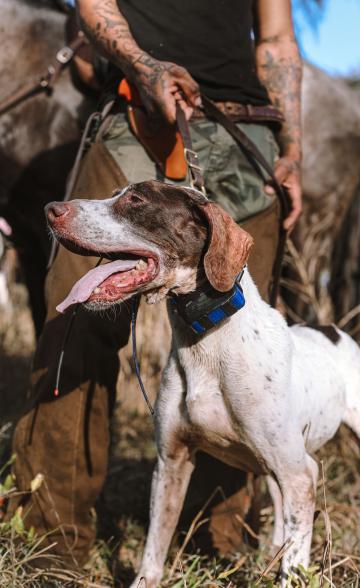
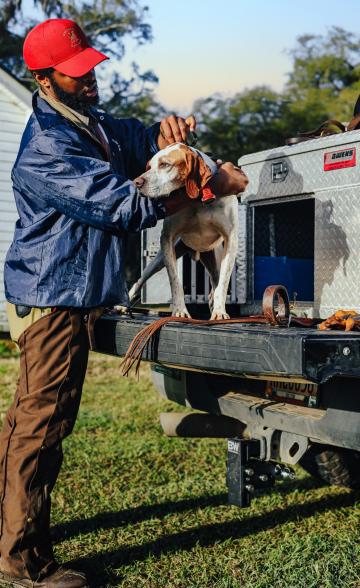
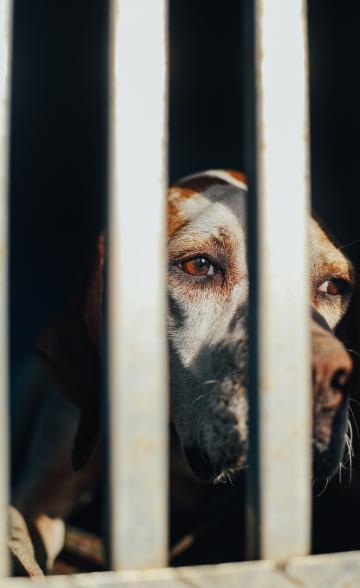
His first year competing in this field trial (due to the pandemic in the previous two years), Durrell is considered one of the club's top young guns. To be crowned champion of the competition is only becoming more elusive. The club's membership continues to grow with newcomers like Durrell, while founding members like Neal Carter Jr. and Curtis Brooks Sr. are still vying for the top spot.
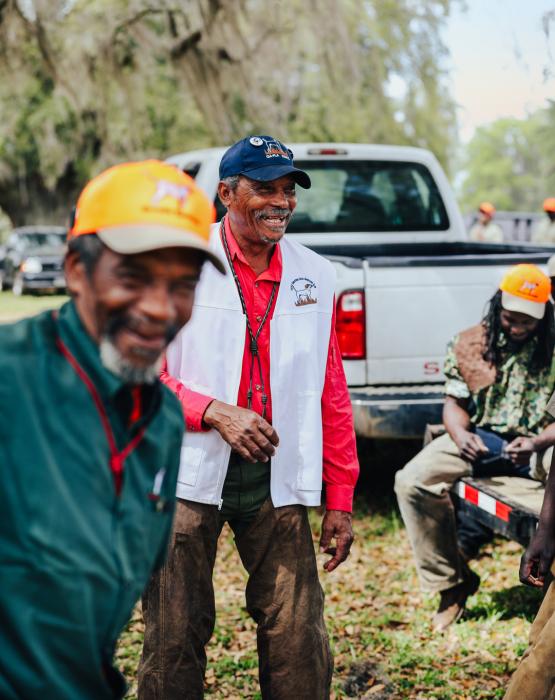
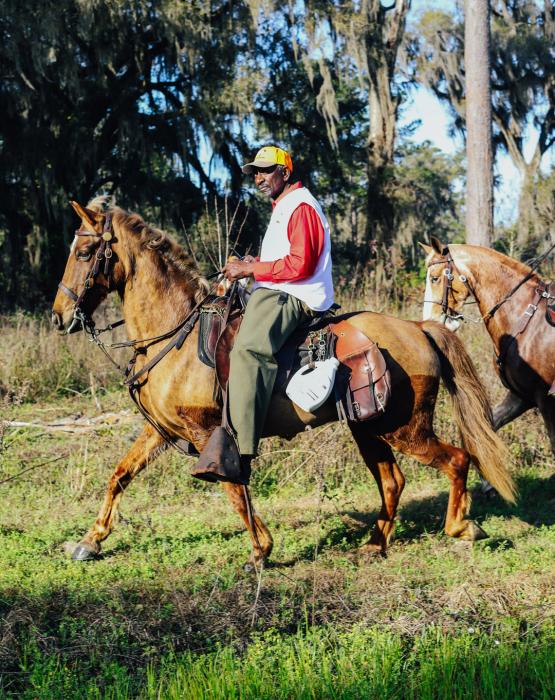
Neal and Curtis are purebred dog men. Not only has it been their profession for over 50 years—training dogs is in their DNA. Their fathers, grandfathers, and uncles were experts on training hunting companions. They were among the best in the region and, by proxy, the country. But because they were Black, they were barred from participating in Georgia and Northern Florida dog trial competitions. Neal and Curtis were subjected to this same treatment early in their lives, but in 1981, they had a realization, along with a few other dogmen of neighboring plantations. They had the knowledge and the dogs, and they knew plenty of other black dog trainers who faced the same barriers—why not form their own dog handlers club and field trial?
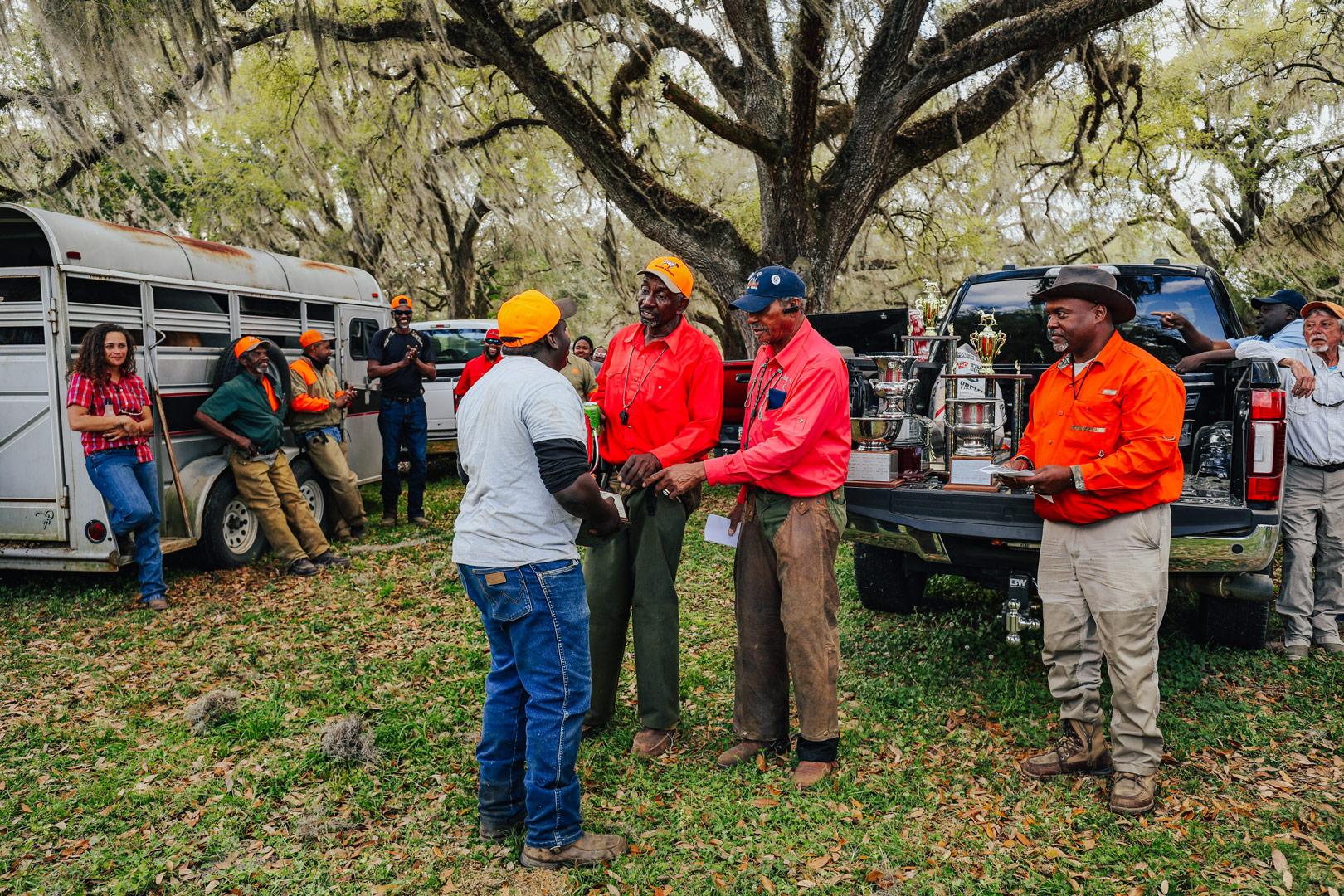
So, it was born: The Black Dog Handlers Association.
Founded 41 years ago as the singular outlet for black folks to compete at a high level in the world of bird dog field training, the club's mission is now focused on fostering a sense of community among Black outdoorsmen and women while advocating for the next generation of African American dog trainers and upland hunters. If the club's growing popularity and size are any indication of the future, they're just getting started.
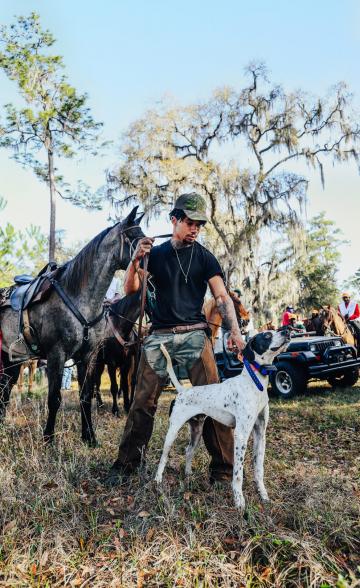

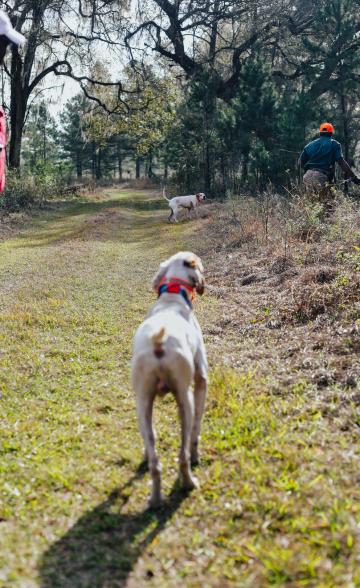
When the club meets to train together throughout the year, it is all about collaboration. That quickly changes to competition on the morning of the field trial. The event takes place on one of Georgia's 150 remaining functioning plantations in the Red Hills region. Due to the climate and soil, native Longleaf Pine trees—the cover of choice for Bobwhite Quail—thrive in this area. All are welcomed to watch the event, which attracts over 100 spectators each year, though you must be Black to compete. Nearly 50 men compete—with several women currently training for future trials—while judges from all backgrounds observe the competition.
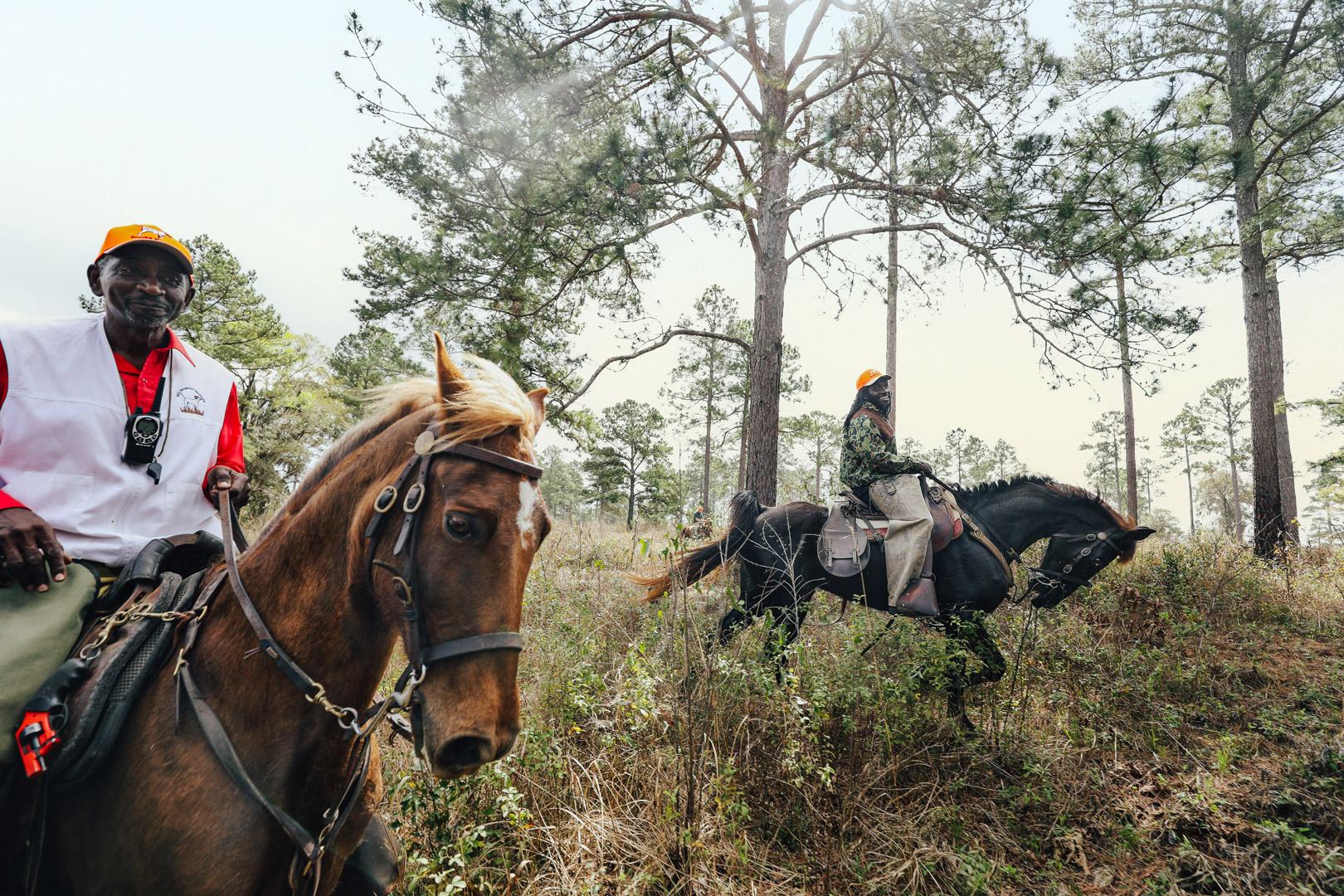
Two dog handlers and their respective canine (referred to as a two-man brace) have exactly thirty minutes to prove why they are best in show. Judges trail closely behind them, rating the number of quail a dog finds, how quality the dog points, and whether they honor another dog's point, among other things. Behind the judges, all spectators and the competitors who aren't currently showcasing their abilities are either on horseback or traveling in style via covered wagon, in the same manner that's been done for two centuries prior.
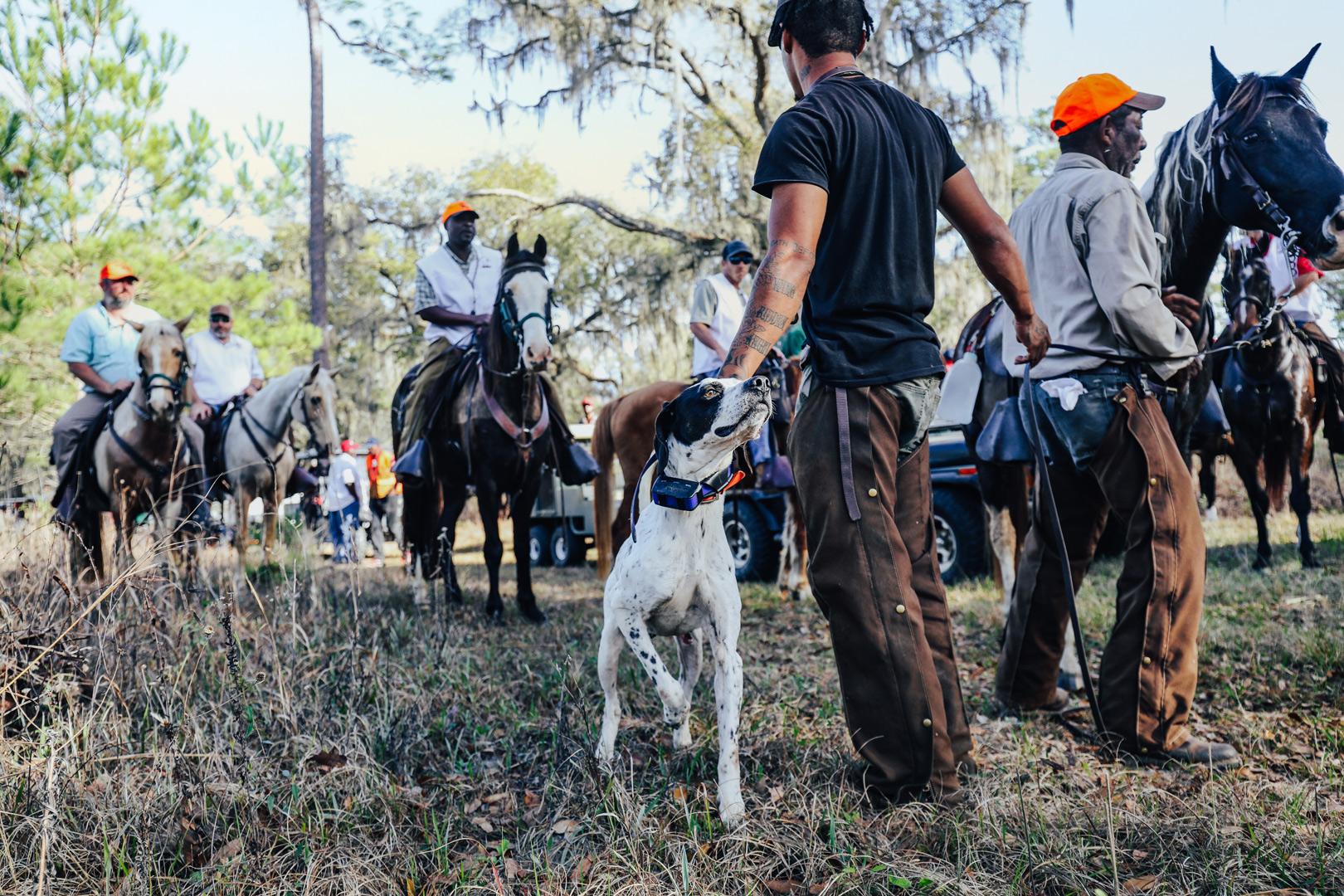
A modern-day Dixie traveling circus, the sounds of southern-drawled friendly banter and the stomp of horses' hooves mingle with excited calls of dog commands and English Pointers screaming through the brush—a cacophony of southern traditions.
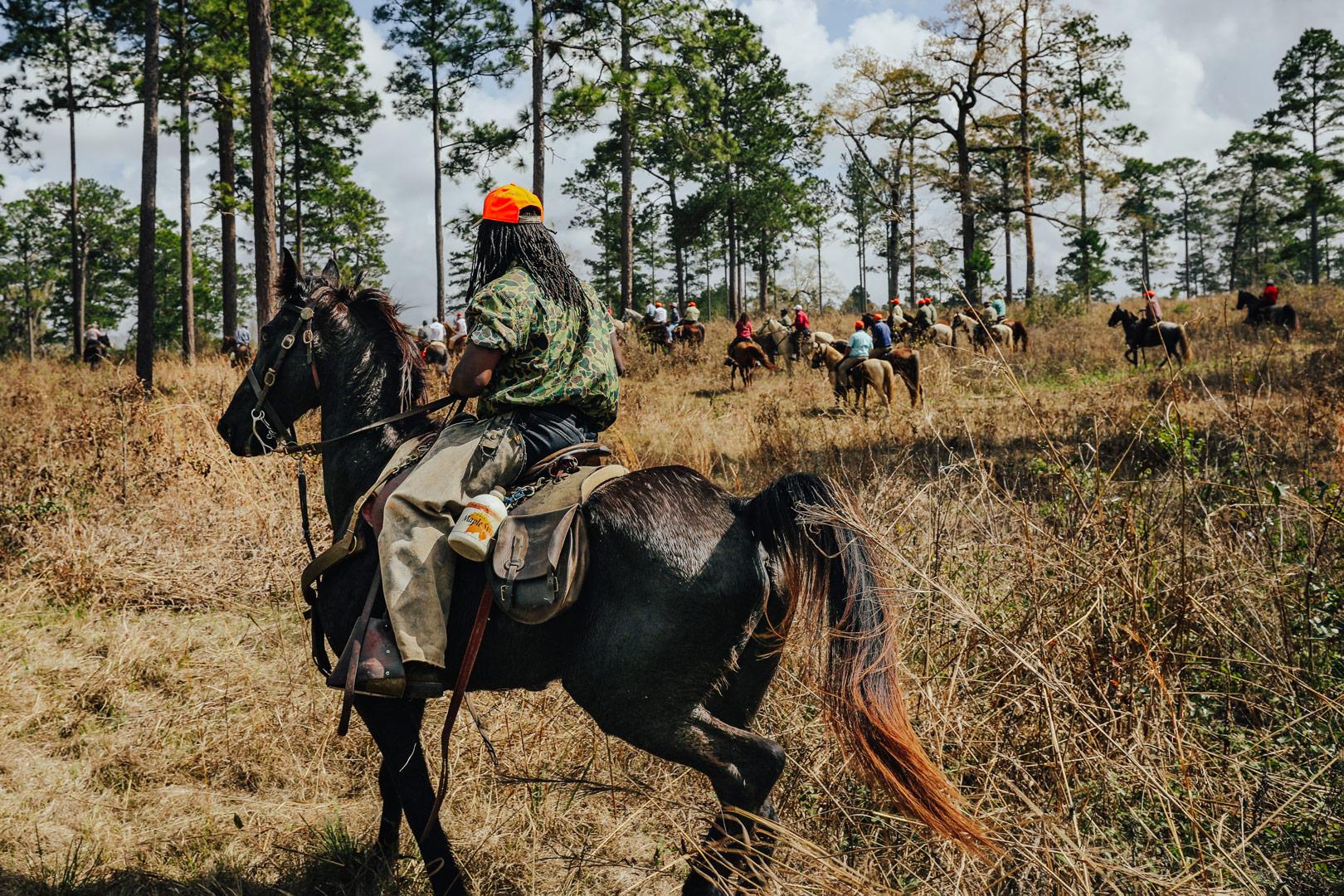
The juxtaposition of African American men holding a sacred celebration of their culture on a plantation isn't lost on them, and the venue may seem ill-suited to those outside the club's circle. For the vast majority of American history, the word "plantation" has obvious connections to slavery. However, it's a more nuanced conversation for black dog trainers in the south. The surrender of the Confederate Army at Appomattox Courthouse in 1865 signaled the end of the South's slave-labor-based economic model. Wealthy northerners purchased plantations that couldn't sustain operations after the civil war, intending to use the properties as hunting retreats where they could also escape the cold during the winter months.
Thomasville escaped the war unscathed and served as the southernmost stop on the railroad lines at the time. These factors, combined with the abundance of quail, made the area ideal for Yankee snowbirds. Freed slaves were offered jobs training dogs, breaking horses, and guiding hunts. And, so, the rich history of black bird dog trainers began.
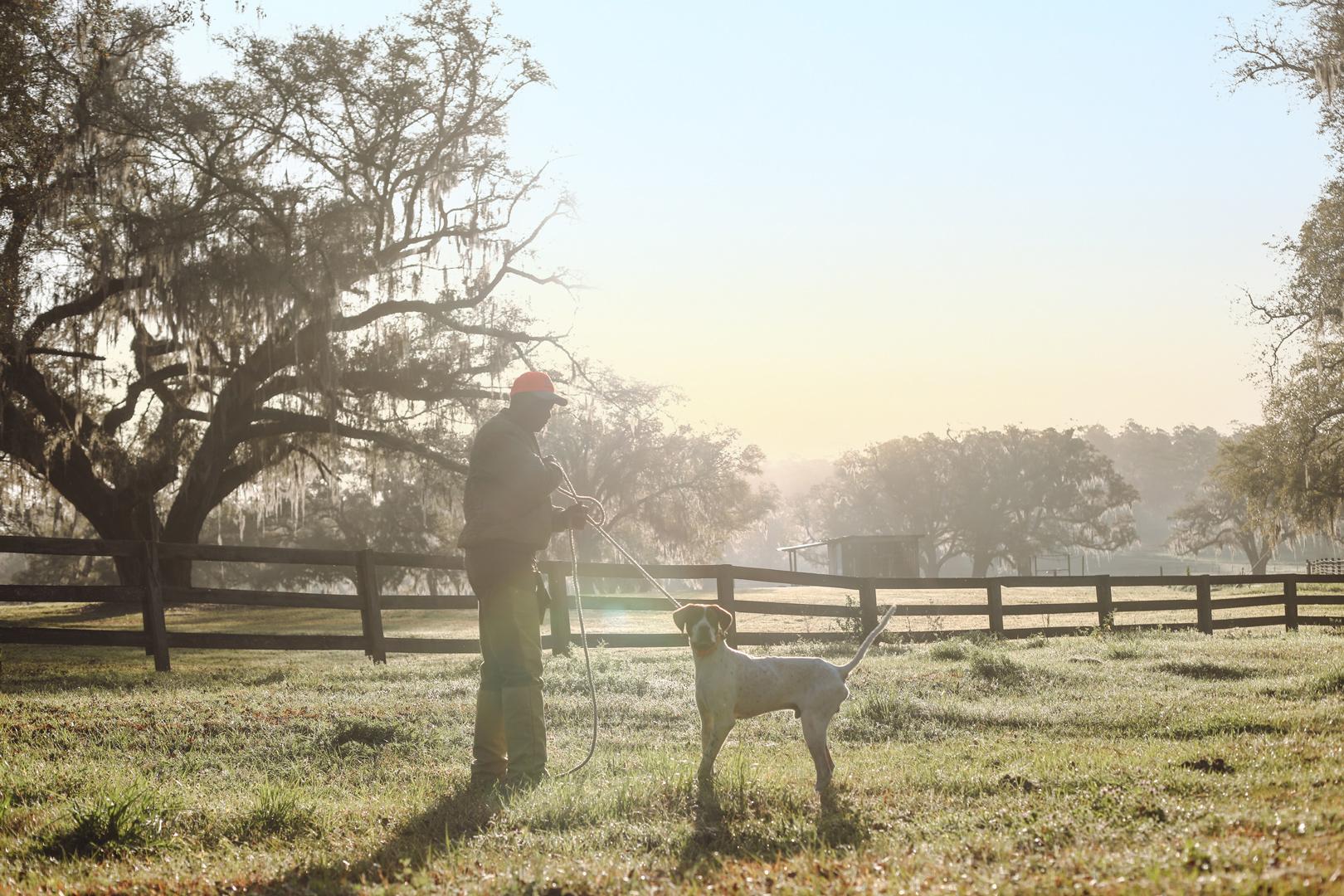
"We want to take the word back," Durrell said, explaining why the trials are held on plantations. "We are a club of traditionalists. The trials took place on plantations. It's these properties where bloodlines of Black bird dog trainers came from. We celebrate past dog trainers and mold the next generation right where it all began."
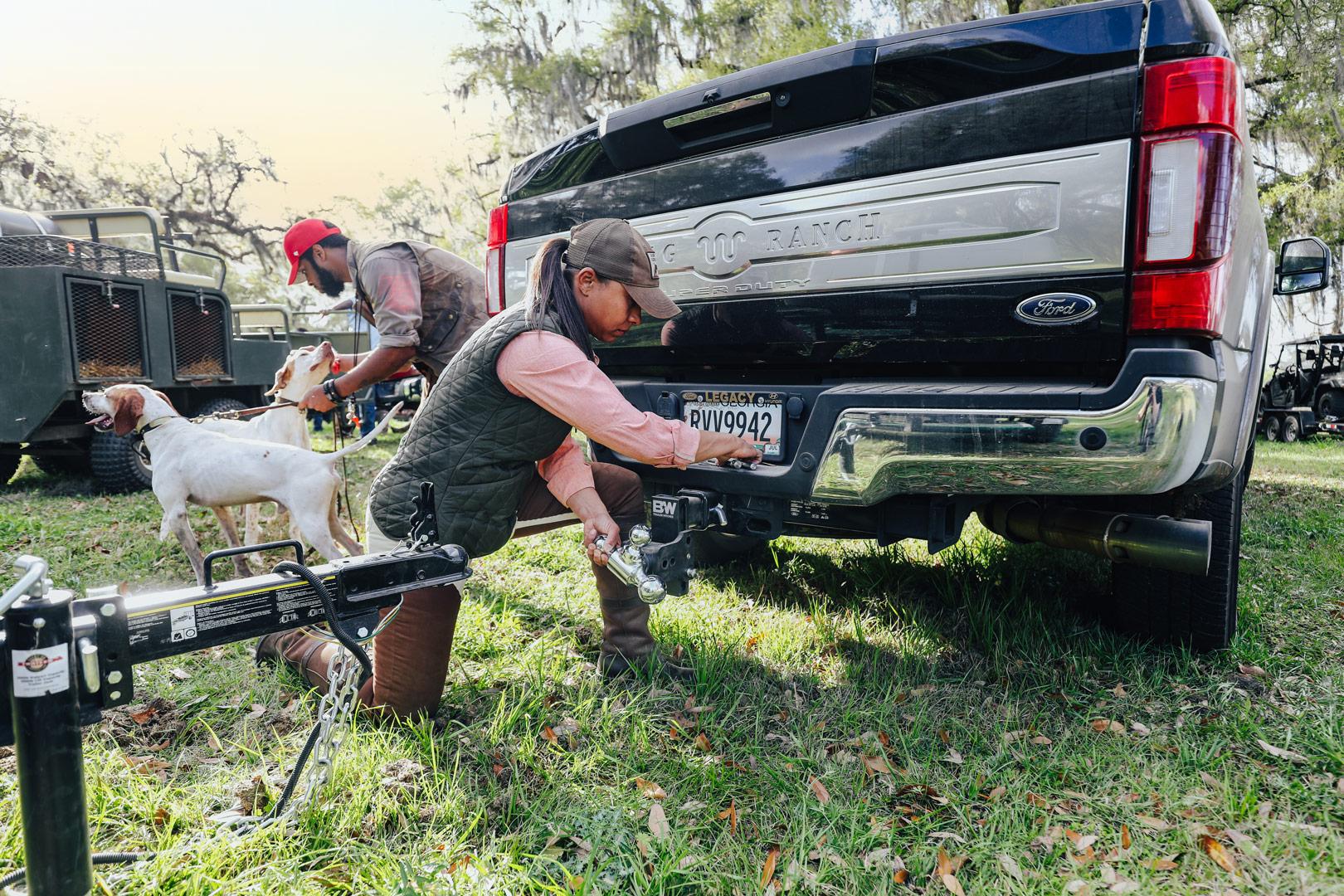
One would assume that the five-decade gap between the club's oldest and youngest competitors would make for an atmosphere akin to a family reunion, but it’s far more exuberant. The comradery, energy, and sense of community on display at the Black Bird Dog Handlers Field Trial are reminiscent of decades-long fraternity brothers. Every time the club gets together and cuts their dogs loose to track down the famed Red Hill’s Bobwhite Quail, they aim to accomplish three things—honor those who came before them; build other current dog trainers up; and blaze the trail for those who will join their future ranks.
